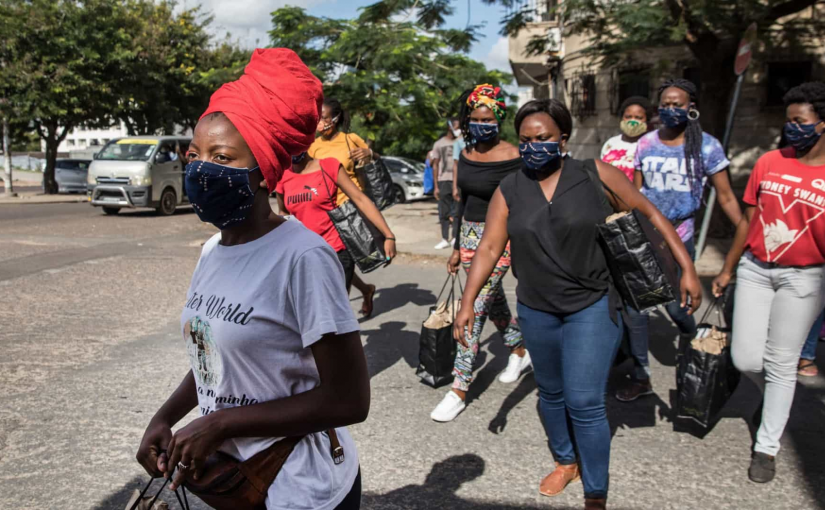Mozambique: AfDB-led training programme builds national capacity for climate disaster response
Mozambique: Masks now obligatory in public places – AIM report

Photo: Noticias
The Mozambican government on Tuesday tightened preventive measures against the Covic-19 pandemic, by making it obligatory to wear face masks in public places and in any gatherings of people.
The new measure was announced at the end of the weekly meeting of the Council of Ministers (Cabinet), and is regarded as part of the measures needed to enforce the state of emergency that has been in force since 1 April.
Speaking to reporters after the meeting, the government spokesperson, Deputy Justice Minister Filimao Suaze said the government is not bringing any new measures but strengthening those that are already in place.
He said the authorities have noted that in many gatherings, people are not respecting social distancing, regarded as a key measure for preventing transmission of the coronavirus that causes Covid-19. The Health Ministry, at every opportunity, has stressed that, in any queue or other gatherings, there should be a distance of at least 1.5 metres between one person and the next
The media have reported compete disrespect for this norm from all major cities. One of the most scandalous examples are the huge crowds of people gathered outside the Central Hospital in the northern city of Nampula, waiting to see hospitalized relatives. They are crammed together without the slightest attempt at social distancing, and most are not wearing masks.
The hospital authorities say it is not their concern, since this area should be controlled by the Nampula Municipal Council. But the Council and the municipal police have taken no measures to organise the crowd.
It was already obligatory to wear masks in any form of public transport, and the police say they have been throwing people off buses for not wearing masks. Since Monday this policy has extended to public buildings, with Ministries now bearing signs reading “No entrance to this Ministry to anyone who is not wearing a mask”.
Suaze said the new measure means “that, in addition to public transport, the use of masks is now obligatory anywhere else that people gather”.
He mentioned markets in particular. Market stallholders were already obliged to wear masks (although many of them have refused to do so). Now their clients must also use masks.
Suaze applauded the initiative shown by those business people who are making cotton masks and selling them at accessible prices. This, he said, “ensures that we can all have a mask to cover our nose and mouth when we are in public places”.
The government, Suaze said, had noted a general relaxation in compliance with the measures imposed by the state of emergency. He stressed that, except in cases of necessity, citizens should stay at home, Now that all schools are closed, children in particular should stay at home.
The government did not want to use the defence and security forces to enforce the state of emergency, since it believed that awareness raising by parents, churches, or community leaders should be enough to guarantee that citizens stay at home.












Leave a Reply
Be the First to Comment!
You must be logged in to post a comment.
You must be logged in to post a comment.